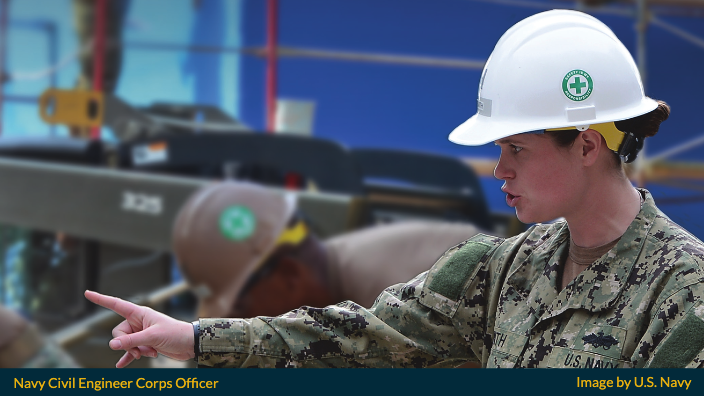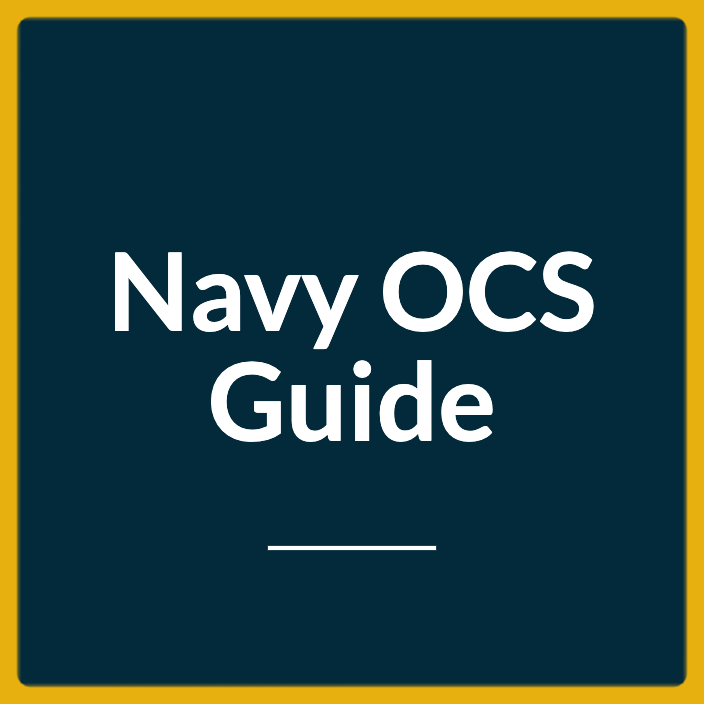Last Updated on November 16, 2023
This guide provides helpful information for those looking to become a Navy Civil Engineer Corps Officer through the Navy Civil Engineer Corps Collegiate Program during Fiscal Year 2024.
The Navy Civil Engineer Corps (CEC) offers a Collegiate program that provides opportunities for individuals interested in pursuing a career in engineering or architecture to serve as officers in the United States Navy.
This article will guide you through the eligibility requirements and benefits of the program, helping you understand if you qualify and what to expect.
Program Overview
The Navy Civil Engineer Corps Collegiate Program (CEC-CP) is an innovative officer accession program that allows college students pursuing degrees in engineering and architecture to serve as CEC officers in the United States Navy.

The program provides participants with opportunities to gain valuable experience, receive advanced training, and support the Navy’s high-tech fleet of ships while pursuing their undergraduate or graduate degree.
Participants in the program will gain experience in a variety of engineering and architecture disciplines, including construction engineering, environmental engineering, geotechnical engineering, hydraulic engineering, structural engineering, transportation engineering, and water resources engineering.
Along with their degree work at an accredited college or university, participants will also attend Officer Candidate School (OCS), followed by technical training for their respective discipline.
Upon successful completion of their degree program and initial technical training, participants become Navy Officers and receive a commission in the Navy CEC.
Program Eligibility Requirements
The basic requirements below are current as of October 2022, per the Navy Personnel Command. No updates have been issued thus far.
Basic Requirement
- Age: Applicants must be between 19 and 36 years old.
- GPA: A minimum GPA of 2.7 is required to be considered for the program.
- Citizenship: Applicants must be U.S. citizens.
- Degree Program: To be eligible, you must be enrolled in or have graduated from an ABET-EAC engineering or NAAB architecture degree program.
Engineering Applicants
Applicants must be pursuing ABET-EAC accredited bachelor’s degree. Those within three months of graduation are considered direct accessions.
Those interested may apply within 12 or 18 months of graduation. Selectees will ship out to OCS one to two months after graduation.
Architecture Applicants
Applicants are required to be pursuing an NAAB accredited professional degree in architecture, which can be a Bachelor’s or Master’s degree in architecture. Bachelor of Science degrees in Architecture are not eligible.
Those interested may apply within 12 or 18 months of graduation. Selectees will ship out to OCS one to two months after graduation.
Competitive Candidate Criteria
To increase your chances of being accepted into the program, it is beneficial to meet the following criteria:
- Ideal GPA and Certifications: Having a GPA higher than 3.1 will make you a more competitive candidate. Possessing certifications such as EIT/NCARB/PE/RA is a definite advantage.
- Extra-Curricular Activities: taking part in campus organizations, intramural or varsity sports, and community involvement activities will show your well-roundedness and leadership potential.
- Employment: Holding a part-time job while in school or engaging in engineering internships or CO-OPs will show your commitment and practical experience in the field.
- Direct Accession Candidates: Those who have already graduated from an eligible degree program can apply for the direct accession program at any time.
- Collegiate Program Candidates: Students who have a GPA of 3.0 or higher and have achieved a “B” or better in all STEM courses may be eligible to apply as early as 24 months before graduation.
Service Commitment
If accepted into the Collegiate program, you will be required to attend Officer Candidate School (OCS) and the Civil Engineer Corps Officer School (CECOS).
Following OCS graduation, you will serve for four years of active duty plus four years in the inactive reserve.
Salary and Benefits
In terms of financial compensation, you can expect to earn an average of $3,938 per month, which includes E-3 pay plus a housing allowance based on your locality.
You will receive full medical and dental insurance, an ID card, and military discounts.
Responsibilities While in College
While participating in the Collegiate program, you will need to maintain your GPA and complete a PRT (Physical Readiness Test) test twice per year.
It is essential to adhere to the Uniform Code of Military Justice (UCMJ) and conduct yourself in a manner befitting a naval officer.
However, you will not be required to wear uniforms, get military haircuts, attend military classes, or engage in drilling activities.
If you are seeking to apply to the Navy CEC Collegiate program, it is recommended to visit the official Naval Facilities Engineering Systems Command website. There, you can find further information and details on the application process.
In conclusion, the Navy Civil Engineer Corps Collegiate program offers a unique opportunity for individuals pursuing careers in engineering or architecture to serve as officers in the U.S. Navy.
By meeting the eligibility requirements, demonstrating competitive qualities, and committing to the program’s responsibilities, you can embark on a fulfilling and rewarding journey as a CEC officer.
More Information
You may contact the Naval Facilities Engineering Systems Command (NAVFAC) at (800) 202-4153 or go to https://www.navfac.navy.mil/cec/programs/cec_collegiate_program/ for more information on the Navy CEC Collegiate program.
If you want more actionable information about becoming a Navy Civil Engineer Corps officer through the CEC Collegiate program, the next logical step is to contact a Naval Officer Recruiter.
Let us figure out how you can benefit from becoming a Navy CEC officer—or if it is even the right move for you, considering your current life situation.


